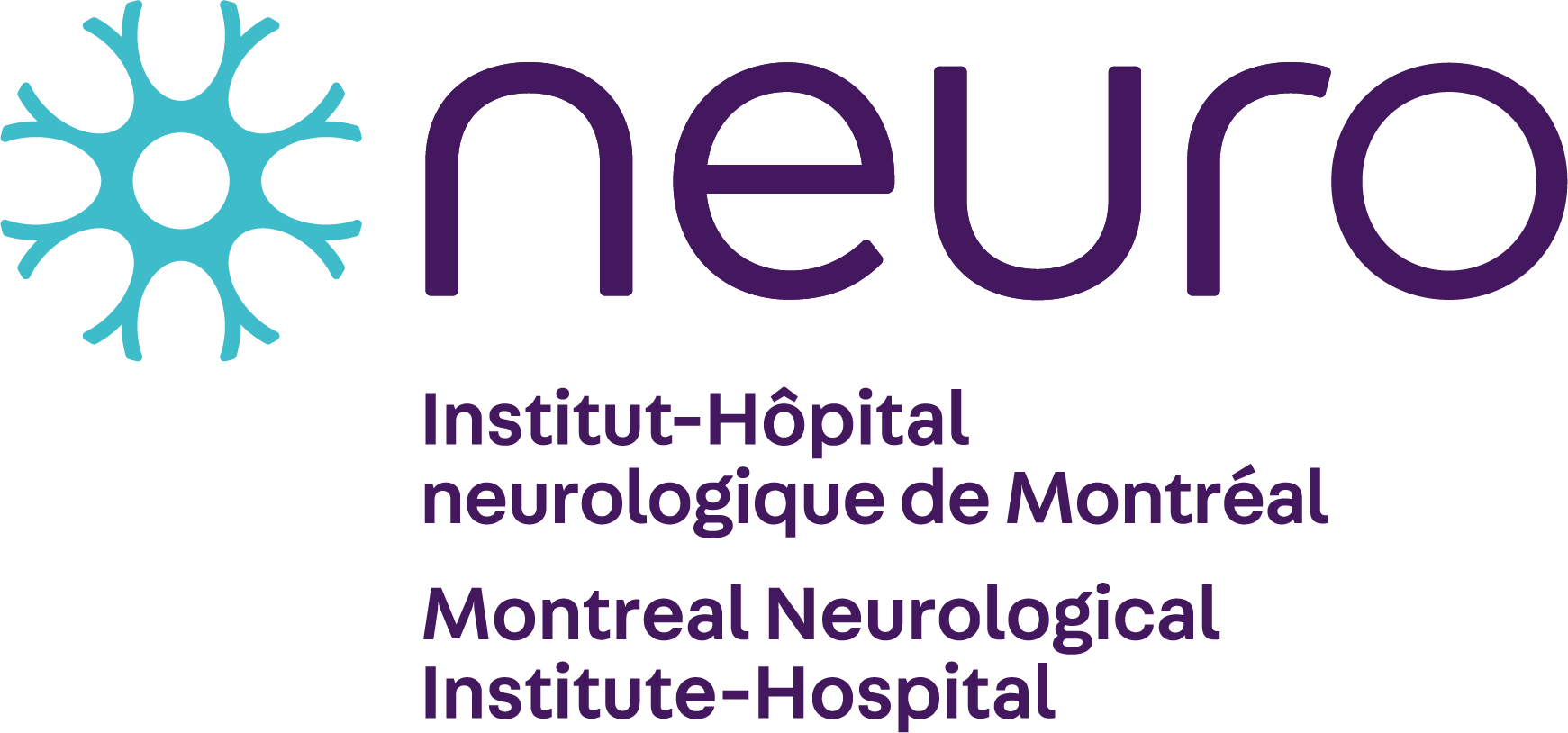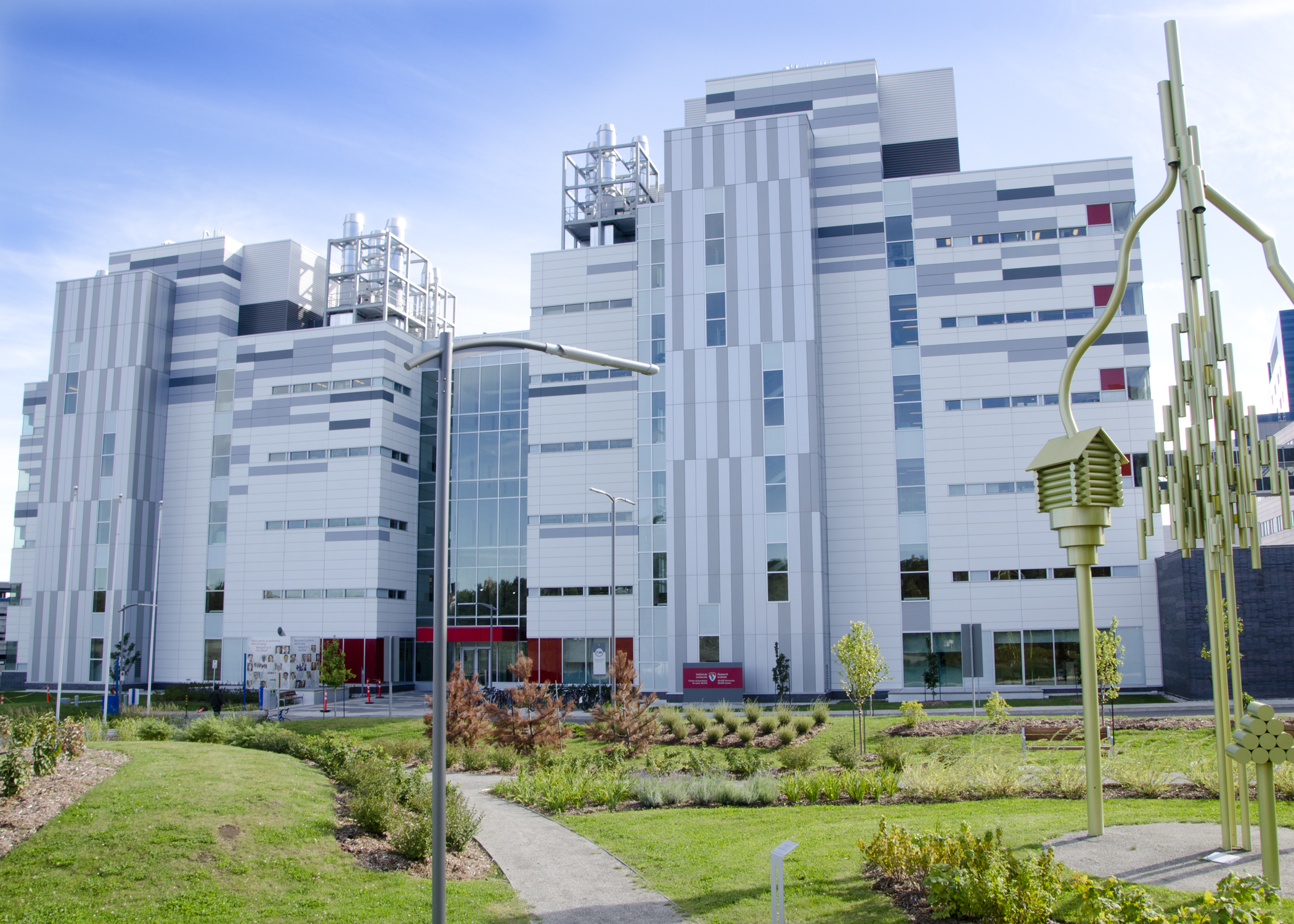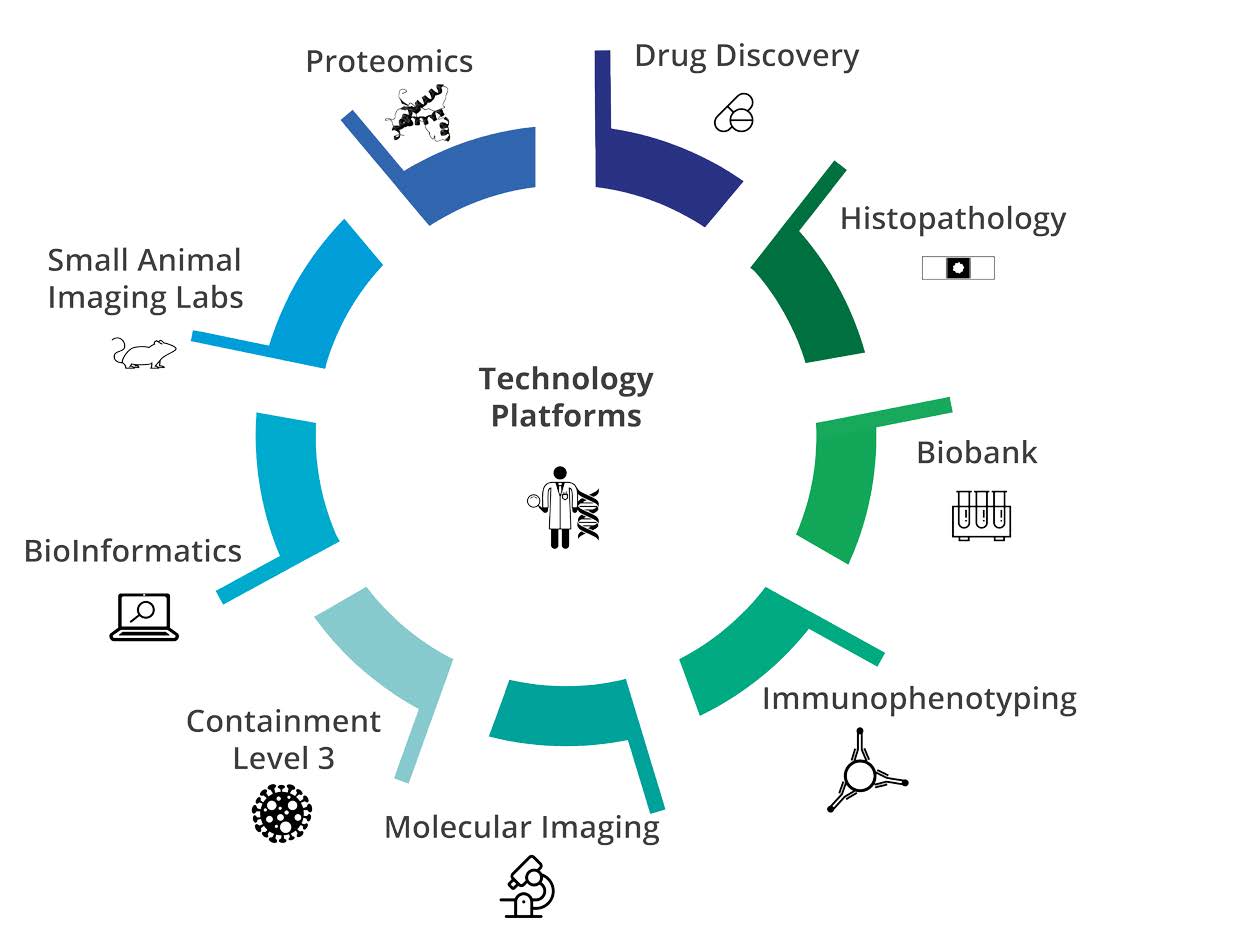One of the main goals of the MRM Network is to encourage research that seeks novel forward-looking insight and discovery in a basic understanding of biological concepts of stem cells, which translate into novel technologies and RM. In that sense, it is crucial that MRM supports our researchers in using the numerous quality platforms that have been built across the McGill network.
You will find here a list of MRM Affiliated Core Facilities across McGill research institutes and hospitals, including:
- Lady Davis Institute for Medical Research
- Life Sciences Complex
- McGill Genome Centre
- The Neuro (Montreal Neurological Institute – Hospital)
- Research Institute of the McGill University Health Centre (RI-MUHC)
- Strathcona Anatomy and Dentistry Building
Lady Davis Institute for Medical Research

| Core Facility | Description | Website | Contact |
Flow Cytometry Facility |
Provides complete flow cytometry analysis and cell sorting services in terms of experimental design, instrumentation, training, technical assistance and scientific guidance. | Website | Christian Young, Manager Email |
High-Performance Computing
|
Provides expertise in structure-based drug design. Computational simulation of drug/target interactions, and identification of novel drug candidates based on the three-dimensional structure of the target. | Website | Jian Hui Wu, Scientific Director Email |
Peptide Synthesis Laboratory |
Specializes in various custom and contract services related to peptide science. Peptides are complex molecules and each peptide sequence is unique with regard to its chemical and physical properties. | Website | Hinyu Nedev, Manager Email |
The George and Olga Minarik
|
Part of the Montreal Center for Experimental Therapeutics in Cancer (MCETC), it provides pathological and histological services to support research at the Lady Davis Institute (LDI), as well as other universities and companies. | Website | Naciba Benlimame, Manager |
Cell Imaging Facility |
Provides expertise in confocal, live cell imaging and epifluorescent microscopy to the researchers of the Lady Davis Institute as well as external researchers from academic and industry. | Website | Chia-Hao (Jasper) Chang, Manager |
Cell Processing Center |
Designed as an enabling infrastructure to support the prosecution of early phase clinical trials of cell-based therapies where processing of human cell and tissue is required as part of the study. | Website | Nicoletta Eliopoulos, Director |
Small Animal Research Core |
The mission of the Animal Resource Centre (ARC) is to facilitate the research of scientists while ensuring the highest quality of care for the animals it houses. It offers advice and support to the LDI, JGH, McGill, and other academic and non-academic communities. |
Website | TBA |
NanoString Gene Expression
|
The NanoString™ nCounter® Analysis System is a hybrid capture-based technology that allows for quantitative, highly multiplex gene expression analysis in minimal sample volumes without PCR artifacts. | Website |
Life Sciences Complex

| Core Facility | Description | Website | Contact |
Advanced BioImaging Facility
|
State-of-the-art light microscopy: from planning to publication, broad expertise including live cell, 3D and quantitative imaging. | Website | |
Imaging and Molecular
|
The Platform is part of the Green Chemistry CFI initiative and a centralized resource for microscopy and molecular biology equipment. The platform provides instruments, training and assistance to internal and external researchers. | Website | Nicolas Audet, Manager Email |
Surface Plasmon
|
Surface plasmon resonance (SPR/BIACORE) for label-free, real-time protein interaction analysis. MALDI-TOF/TOF and ESI-qTOF systems for mass spectrometry (MS) applications including MALDI tissue imaging and ultra-high resolution LC-MS proteomics. | Website | Mark Hancock, Manager Email |
TCP Infection and Inflammation Core |
Provides standardized functional and outcome analysis for in vivo models of infectious and inflammatory diseases. | Website | Mitra Yousefi, Manager Email |
Flow Cytometry
|
Located in the Bellini Pavilion of the Life Sciences Complex, the Core facility provides instrumentation and technical assistance to perform laser-based flow cytometric analysis, as well as providing an operator-based cell sorting service. | Website | Julien Leconte – Camille Stegen, Managers Email |
Histology Innovation Platform
|
The GCI’s Histology Facility provides a full range of histology services to the McGill research community as well as the surrounding academic and private sectors at very competitive prices. | Website | Plinio Da Cruz – Nicole Robinson Email |
Single Cell Imaging
|
The Single Cell and Imaging Mass Cytometry Platform (SCIMAP) is a core facility at the Rosalind and Morris Goodman Cancer Institute (GCI) housing Fluidigm CyTOF (Cytometry by Time of Flight) mass cytometry technologies for analyzing dissociated tissues and blood (Helios) and tissue sections (Imaging Mass Cytometry (IMC) – Hyperion), with dedicated, highly qualified personnel to assist with assay development and data analysis. In collaboration with Fluidigm and via in-house optimization, SCIMAP provides validated and customizable antibody panels for detecting immune cell lineage and activation status and other phenotypes, reducing optimization time and costs. | Website | Yuhong Wei, Manager Email |
Metabolomics Innovation
|
The Goodman Cancer Institute’s metabolomics core facility consists of a large array of platforms managed in cooperation with the Metabolism and Cancer laboratories and with the guidance of the oversight committee. | Website | Daina Avizonis, Manager Email |
McGill Integrated Core
|
Mouse models of human disease are an invaluable research resource in the medical research community. At the McGill Integrated Core for Animal Modeling (MICAM), we offer various services related to animal model generation and maintenance. | Website | Mitra Cowan, Manager Email |
McGill Platform for
|
The McGill Platform for Cell Perturbation (MPCP) provides all McGill researchers with low-cost and rapid access to the latest functional genetic tools for biological research. The mission of the MPCP is to support functional investigations of mammalian genomes by providing McGill researchers with complementary means of genetic perturbation that can be applied in order to understand gene function. These comprehensive technological platforms include arrayed and sequence-verified lentiviral genome-wide shRNA (gene suppression), cDNA (for gene overexpression) and CRISPR (for gene knockout/editing; human) libraries. These collections, in arrayed bacterial glycerol stocks, offer a renewable resource for diverse customized screening or testing of individual genes of interest across the human and mouse genomes. | Website | Jutta Steinberger, Manager Email |
Bioinformatics Core
|
The Canadian Centre for Computational Genomics (C3G) has partnered with the Goodman Cancer Research Institute (GCI) to setup and operate a bioinformatics hub at the GCI. The said hub will: – Provide on-demand bioinformatics analysis services to participating GCRC researchers. – Identify training needs and organize training events at the GCRC – Offer advice and guidance on bioinformatics topics to GCRC researchers through consultations and office hours. |
Website | Alain Pacis, Manager Email |
McGill Genome Centre

| Core Facility | Description | Website | Contact |
McGill Applied Genomics
|
Under the auspices of the platform termed the McGill Applied Genomics Innovation Core (MAGIC), the McGill Genome Centre houses state-of-the-art equipment and multidisciplinary expertise to produce, manage and interpret large amounts of genomics data generated at low cost and with high quality. | Website | MAGIC Email |
ABC-Platform
|
Provides support and all services for the characterization of rodent behaviour (discomfort (physical and emotional), motor skills, cognition…) including experimental design, expertise, training, staffing, scientific consulting and access to equipment and workspace* (conditions may apply). | Website | Magali Millecamps, Coordinator Email |

| Core Facility | Description | Website | Contact |
Canadian Centre for
|
The Canadian Centre for Computational Genomics (C3G) provides bioinformatics analysis and High Performance Computing services for the life science research community. It has created a distributed innovation node with broad expertise in bioinformatics, providing customized and case-by-case analysis services as well as an extensive suite of software solutions for the genomics community. | Website | François Lefebvre, Bioinformatics Manager |
The Neuro

| Core Facility | Description | Website | Contact |
Early Drug Discovery Unit (EDDU) |
We combine our capabilities with those of our partners to:
|
Website | NeuroEDDU Email |
Research Institute of the McGill University Health Center

| Core Facility | Description | Website | Contact |
Cellular Therapy Laboratory |
The mission of the Cellular Therapy Laboratory (CTL) is to ensure high quality services provided by and for future patients for transplantations or treatment through approved clinical research protocols. The services provided by the CTL are the supervision of products’ collection, its evaluation, processing, cryopreservation, release, thawing, distribution and long-term follow up. The manipulated products are cord blood, cord tissue, adipose tissue and human whole blood from autologous and allogeneic related and unrelated recipients. | TBA | Linda Peltier, Manager Email |

| Core Facility | Description | Website | Contact |
Biobank |
Bringing together high-quality biospecimens and data to advance biomedical research | Website | Nick Bertos, Manager Email |
Bioinformatics |
Computational medicine core to enhance research and clinical applications in genomics | Website | Joël Lafond-Lapalme, Manager Email |
Containment Level 3 |
A state-of-the-art, multipod facility for studies of tuberculosis, influenza and human immunodeficiency virus (HIV) | Website | Fiona McIntosh, Manager Email |
Drug discovery |
Structure-based drug design, synthesis and analytical support to discover promising new therapeutics | Website | Sanjoy Kumar Das, Manager Email |
Histopathology |
Accelerating disease research via specimen processing in order to visualize biological structures and molecules within tissues | Website | Fazila Chouiali, Manager Email |
Immunophenotyping |
Creating new research opportunities through advances in cell sorting and analytical flow cytometry | Website | Marie-Hélène Lacombe, Manager Email |
Molecular Imaging |
High-end microscopy for advanced biomedical research: from molecules to animal imaging | Website | Min Fu, Manager Email |
Proteomics |
Advanced instrumentation and workflows to identify and quantify proteins, and to detect biomolecular changes in health and disease | Website | Lorne Taylor, Manager Email |
Small Animal Imaging Labs |
A comprehensive technology suite for non-invasive imaging of animal models to create holistic pictures of diseases | Website | Mathieu Simard, Manager Email |
The brochure and the list of equipment in each platform are available for download.
Download the list of equipments

| Core Facility | Description | Website | Contact |
Human Islet Transplant Laboratory |
The Human Islet Transplant Laboratory is able to offer researchers around the world with a vast selection of terminally derived pancreatic tissue. | Website | Marco Gasparrini, Manager Email |
The brochure is available for download.
Strathcona Anatomy and Dentistry Building
| Core Facility | Description | Website | Contact |
Bone Imaging and Biomechanics |
The Imaging and Biomechanics Platform offers services, training and consultation in a wide variety of techniques for evaluating mineralized tissue and biomaterials. | Website | Brenda Lee Email |
